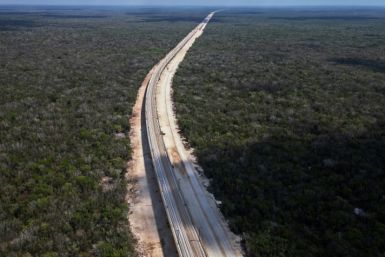Fate of Aussie Sheep Still Unknown After Pakistani Court Defers Decision on Culling
The fate of Australian sheep is still unknown after a Pakistani court deferred on Wednesday a decision on culling the livestock. The Sindh High Court in Karachi adjourned the hearing and will resume session on Thursday.
The Sindh Livestock Department ordered the cull of the animals but Wellard and PK Livestock secured an injunction from the Pakistani High Court. Wellard is the exporter of the 21,000 sheep based in Perth, Australia, and PK is the Pakistani importer.
The 21,000 sheep were initially bound for Bahrain but the Middle Eastern country rejected the shipment because the sheep were allegedly infected with the salmonella virus, anthrax and foot-and-mouth disease. Pakistan agreed to accept the shipment but also rejected the animals for the same reason.
So far about 7,000 of the Australian sheep had been culled allegedly in a brutal and inhumane manner, which Karachi authorities denied. The animals were reportedly stabbed, clubbed to death, had their throats slit and buried alive.
To save the Australian live export industry, the country's Department of Agriculture, Fisheries and Forestry took samples from 102 animals and told the Senate committee that laboratory tests results indicated the sheep were negative for diseases.
Two independent laboratories have made similar tests and came up with the same result which it submitted to the Sindh Court.
Besides the threat to the country's live sheep export trade, a Queensland mayor warned on Thursday that Australia's northern beef industry is in danger of collapse due to rising farm debt.
Richmond Mayor John Wharton aired the warning at ongoing talks among banking representatives, primary producers and several MPs including Agriculture Minister Joe Ludwig and Treasurer Wayne Swan wherein he pushed for reduction of the Australian currency's value.
"That'd mean higher prices for our export products such as mining and agriculture and any manufacturing we do. It will also put up the cost of cheap imports, especially food that Woolworths and Coles are importing, and that at the moment are really costing our Australian farmers a lot," ABC quoted the mayor.
However, Mr Swan said the Australian dollar would likely remain high.
Mr Wharton also cited drought, flood and live export bans which also have devastating effects on the country's northern cattle industry.






